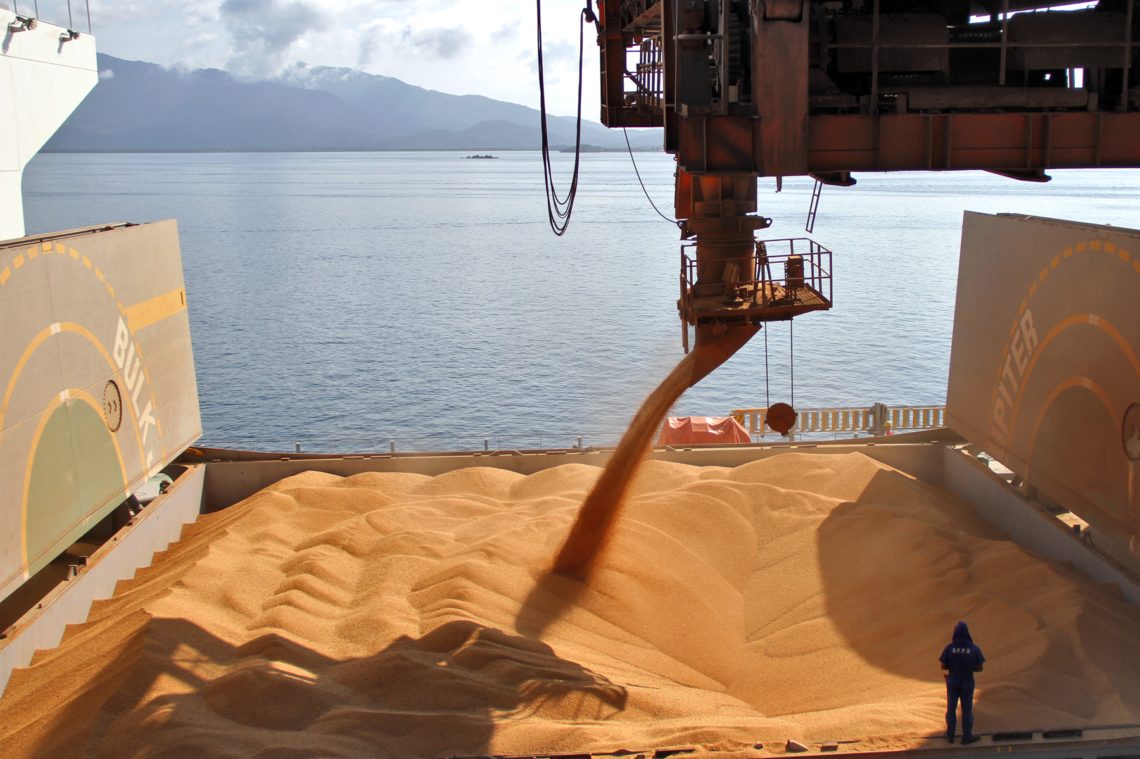Beyond the Black Sea: How Russia’s war in Ukraine is exacerbating food insecurity

When the rich wage war, it’s the poor who die,” Jean-Paul Sartre once said. How apt this sounds in the current circumstances when Russia’s onslaught on Ukraine since Feb. 24 has disseminated misery and hunger throughout the East European nation.
For millions of Ukrainians, the rattling vibrations of lethal ballistics have become a routine affair. But equally dreadful is the fact that children are sleeping hungry and vulnerable as countless people have lost their homes and source of income. According to the International Organization for Migration, a part of the United Nations system, over 13 million people, including children, have been displaced within Ukraine or crossed the border to neighboring countries.
As of July 4, close to 5,000 Ukrainians have lost their lives in the conflict, the United Nations High Commissioner for Human Rights has reported. But that’s not the end of perimeter for this crisis.
Over 70 poor nations across the world, mostly in Africa are also bearing the brunt of the war. Although these people, living thousands of miles away, are spared the daily terror of war sirens and carnage, starvation has become their trepidation.
Food supply lines of staple crops such as wheat and corn were gagged. As a result, poor nations are scurrying for alternative suppliers, which are sadly not many.
While Moscow and Kiev struck a deal on July 22 to finally allow exports from Ukranian ports, the situation remains volatile, especially after Russian missiles hit the Black Sea port of Odesa within hours of penning the treaty papers.
The Food and Agriculture Organization estimates that wheat supplies from Black Sea, primarily comprising Ukrainian and Russian shipments, account for at least a third of total imports by almost 38 countries, mostly African.
This over-dependence on one supply source has left many poverty-stricken nations susceptible to a colossal food scarcity.
The Ukrainian infrastructure is in shambles as incessant bombings have turned key logistical channels into rubble. On top of that, Black Sea ports have been reduced to nothing but death traps. According to local media reports, the Russian military has allegedly planted marine mines across the Ukrainian sea belt, making it almost impossible for cargo ships to operate in the region.
Major agri-business companies, including Bunge Ltd. fear that the logistical infrastructure damages incurred by Ukraine – one of the world’s leading “breadbaskets” – is profound and restoration will take a sizable chunk of time.
“Even after a resolution [to the war in Ukraine], there will be a long tail on this [post-war restoration] because there is infrastructure that has been damaged,” Bunge CEO Greg Heckman said in first-quarter earnings call on April 27.
“There are seaborne logistics that have to be untangled,” Heckman said. “There are waters that need to be de-mined.”
But most worryingly, restoration is not an immediate concern for many as they fear the war to exacerbate in coming days. An array of threats emanating from Kremlin is only stoking the warmongering fear.
Russian President Vladimir Putin has warned Ukraine that it should concede Moscow’s terms or brace for the worst.
“Everybody should know that largely speaking, we haven’t even yet started anything in earnest,” he said in the Parliament on July 7. “It’s a tragedy for the Ukrainian people, but it looks like it’s heading in that direction.”
According to the UN World Food Programme report on June 6, over 49 million people in 46 countries are at risk of succumbing to famine or famine-like conditions in 2022.
It’s not as if Russia-Ukraine war suddenly opened the Pandora’s box of global food scarcity.
This cataclysm has been brewing for a couple of years as the COVID-19 pandemic shook the global economy to its core. And then frequent droughts across the key agricultural regions thrusted food inflation on a steep curve up.
Russia’s invasion of Ukraine only acted as an ultimate catalyst, which is shoving low-income groups in third-world countries towards famine.
“The war in Ukraine, on top of all the other global crises, threatens tens of millions of people with food insecurity, malnutrition, mass hunger & famine,” António Guterres, secretary-general of the United Nations tweeted on May 19.
Ever since Russia’s offensive in Ukraine, the global food supply chain has been rattled with export restrictions.
Fearing a spike in domestic food prices, nearly 20 countries have so far banned the exports of grains and oilseed products. Although some nations have gradually retracted their trade restrictions, many are still holding firm.
In fact, there are talks of more nations joining the “trade ban” club to curb the inflationary pressure on their economies.
This rising wave of food nationalism has in fact boosted the commodities’ prices even higher, S&P Global Commodity Insights data showed.
Unfortunately, this vicious circle of inflation and trade restrictions is likely to breed mayhem in many poor countries.
“We have a ring of fire circling the earth now from the Sahel to South Sudan to Yemen, to Afghanistan, all the way around to Haiti and Central America,” David Beasley, executive director of the UNWFP said at a session of the Munich Security Conference in Germany.
“If we do not address the situation immediately over the next nine months we will see famine, we will see destabilization of nations and we will see mass migration. If we don’t do something we are going to pay a mighty big price,” Beasley said.
Read also
Wheat in Southern Brazil Impacted by Dry Weather and Frosts
Oilseed Industry. Leaders and Strategies in the Times of a Great Change
Black Sea & Danube Region: Oilseed and Vegoil Markets Within Ongoing Transfor...
Serbia. The drought will cause extremely high losses for farmers this year
2023/24 Safrinha Corn in Brazil 91% Harvested
Write to us
Our manager will contact you soon



